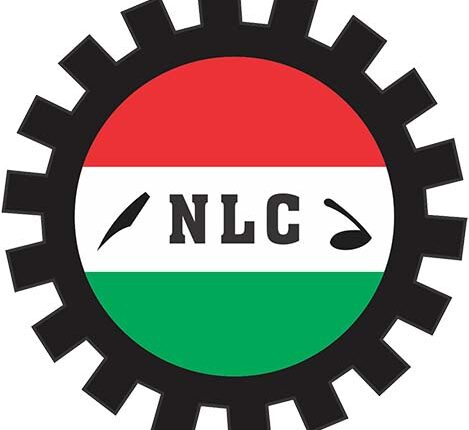Abdulraheem muhammed olarewaju
The Nigeria Labour Congress (NLC) has announced that all states must adopt the newly established N70,000 minimum wage with the promise of closing any state that disregards this mandate,
Mr. Christopher Arapasopo, the Chairman of the NLC Osun Chapter, made the announcement on Saturday during an interview with the News Agency of Nigeria (NAN).
Arapasopo stated that the NLC decided on the increased minimum wage during a National Executive Council (NEC) meeting. He emphasized that this adjustment was a necessary measure to offset a potential increase in fuel costs, which would otherwise impose an additional financial burden on workers and the broader population.
“The governors cannot claim they were absent during these decisions. In fact, they were the ones pushing for N70,000 as the minimum wage,” Arapasopo said, highlighting the crucial role and strong support of state governors in the decision-making process.
The announcement has generated a broad spectrum of public reactions, exposing both support and criticism of the policy and its potential consequences.
Mansur Ahmed, a Facebook user, dismissed the announcement as “bragging,” reflecting skepticism about the implementation and sincerity behind the decision.
Haruna A. Saleh voiced concerns that the focus was solely on government workers, asking, “You are only talking about the minimum wage and not addressing the needs of the masses. How many people are working under the FG/SG government?”
In a more negative reaction, another Facebook user, Ahmad Tanbgo, criticized the policy’s focus, stating, “We’re not after the minimum wage. The subsidy should be reinstated.” This sentiment was echoed by Samuel Ab Mshelia, who pleaded, “We need the fuel subsidy, please. What can 70k afford?”
Conversely, Musa Ishaq Aminu praised the initiative, saying, “That’s a good move.” This positive outlook was shared by Al-Ansari Kurnaa, who humorously added, “Make them try this nonsense in Kano,” suggesting skepticism about its enforcement in his region.
Other users questioned the practical aspects of the new wage. Ahmad Sule Gwaram asked, “When will the minimum wage take effect?”
Abduljalil Bamalli inquired about its broader applicability, “What about private sectors and companies? And which month will it be paid first?”
Some comments were supportive yet cautious. Solomon Acha remarked, “This is how it should be so all states will sit up,” indicating that stringent measures might prompt compliance from state governments.
Onlede Olumuyiwa simply stated, “This is good news,” while Abubakar Ibrahim Mohammed and Bashir Magaji both described the step as a “Good move” and “Supported,” respectively.
However, skepticism remained. Desmond Emmanuel questioned, “NLC are a confused set of people. What can 70,000 buy in the market right now for a family man?” Felix-Oshiokhai Aigbonoga added, “As if 70k is a huge amount in the current state of the nation.”
The Consumers Union of Nigeria redirected the conversation towards broader economic issues, asserting, “If you protest against President Tinubu, you are wasting your time. If you protest against greedy Nigerian sellers, prices will drop drastically. Nigerian sellers are wolves in sheep’s clothing.”
The enforcement of the N70,000 minimum wage by the NLC is a significant development in Nigeria’s labor landscape. However, it faces several challenges. There are concerns about the capacity of states to comply with this mandate, given the varying economic conditions across the country. The potential for widespread shutdowns in non-compliant states raises the specter of economic disruption and social unrest.




